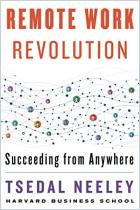
Recommendation
Many workers feel increasingly disconnected and isolated due to the unbridled use of digital communication technologies, organizational divisiveness, and leaders who fail to nurture relationships and trust throughout the workforce. Managers must work to shrink Virtual Distance through connection and affinity, say founder and CEO of Virtual Distance International Karen Sobel Lojeski and research psychologist Richard R. Reilly. The authors first drew attention to the phenomena of Virtual Distance in the book’s first edition in 2008. As they predicted, Virtual Distance has since become worse, and it is threatening key business outcomes.
Summary
About the Authors
Karen Sobel Lojeski leads Virtual Distance International, a research and consulting firm that helps organizations manage Virtual Distance. Professor emeritus Richard R. Reilly taught in the Stevens Institute of Technology School of Business.


















Comment on this summary